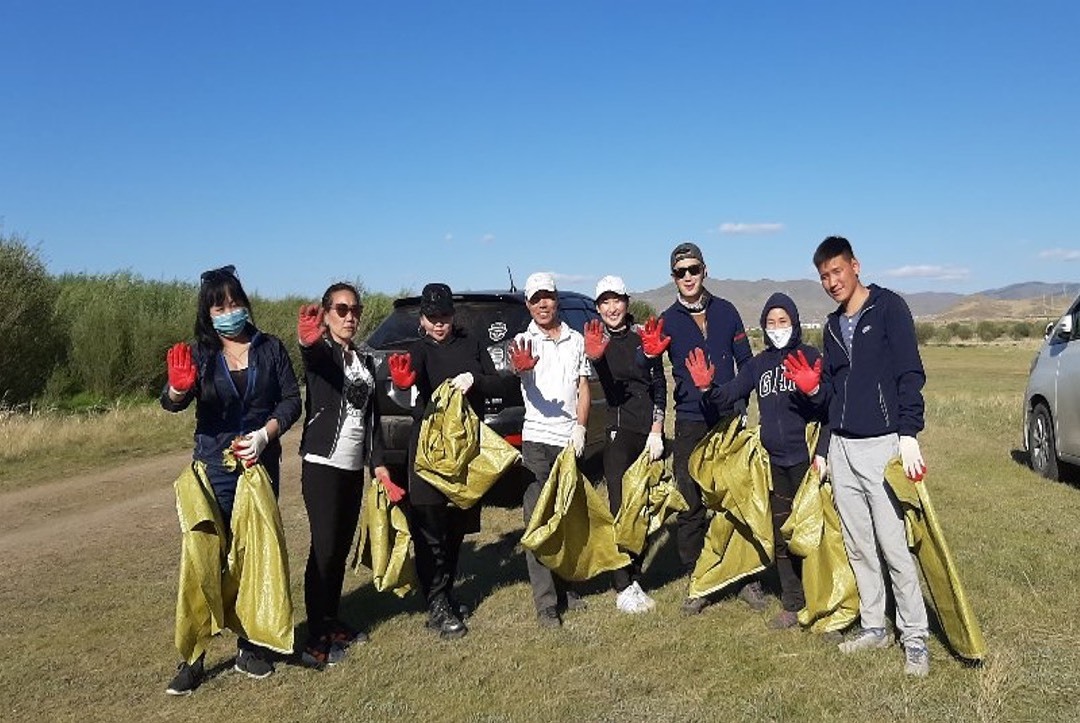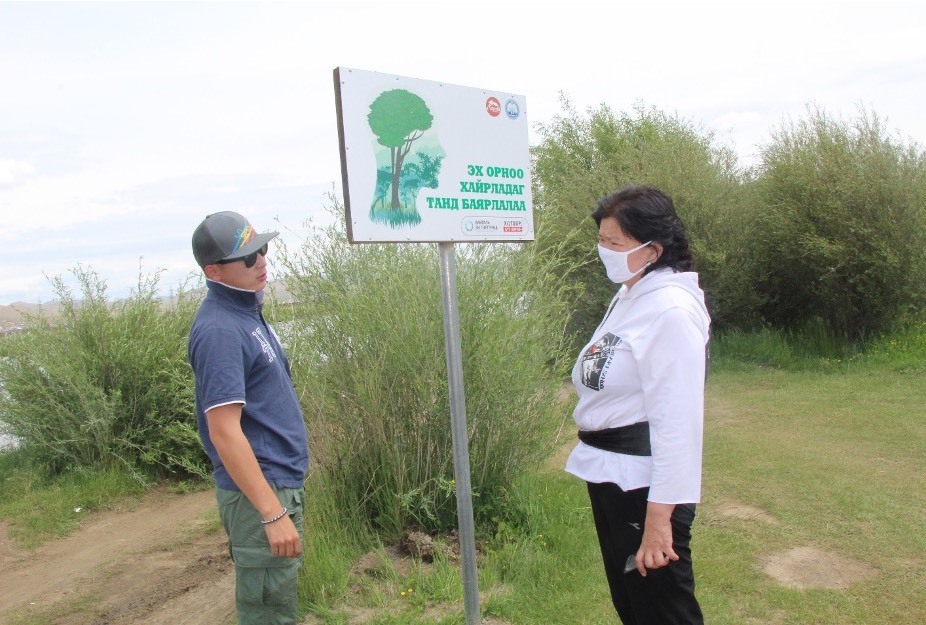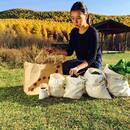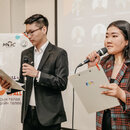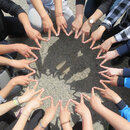The amount of waste in Mongolia is steadily increasing due to the rapid urbanization and shifting consumer behavior and most of it goes to insufficiently-controlled disposal sites or is dumped in nature. Therefore, many young people come together and actively clean up litter and waste from rivers, forests, and the city streets. One of them is Bilegtur O., a member of the Civil Society Organisations’ (CSOs’) Network established under the EU-funded project “Sustainable Plastic Recycling in Mongolia” (SPRIM). Bilegtur O. is the leader of the youth eco-club and Let’s Think Green Club. He is sharing more information about the activities with his club members and their future goals in the following interview.
Please tell us about yourself.
My name is Bilegtur Orosoo. I live with my wife and 2 children in Sukhbaatar district in Ulaanbaatar. I grew up in Ulaanbaatar city. I earned my Bachelor’s degree in Geography and Tourism Management from the National University of Education in 2010. I work at the Security Department of the National Center for Civil Aviation. It was my dream to be a pilot as both my grandfathers trained as pilots and were military veterans. However, I haven’t started pursuing my dream to be a pilot and hope that I will one day make my dream a reality.
What has influenced you to participate in environmental activities?
My interest in cycling and hiking introduced me to the environment sector. I joined a bike trip, organised by the Mongolian Youth Federation, to Terelj National Park with my friend in 2012. The Bicycle Club under the Mongolian Youth Federation was formed right after that bike trip and I joined as a member. I got closer to the environment since becoming a member of the group that promotes an environmentally-friendly lifestyle and cleans up waste. But the person who first taught me to care for and support people in need and to protect and preserve nature was my mother.
You are organising a lot of activities with your club. Can you tell us more about them?
Together with my club members, we have cleaned up to 10 tons of waste since 2016. Not only did we clean up waste but we also placed 10 public announcement boards to encourage a waste reduction in popular areas along the Tuul river in Ulaanbaatar. We placed the boards with quotes such as “Thank you for loving your country”, and “We humans are not the enemies of nature”. We visited the places a few days after we placed the boards and we noticed there was no waste around the areas where the boards were located, which was great. Together with “Esergen Negtgel”, a dance band, we created a dance to raise awareness among the public on waste pollution issues. Afterward, we worked with professional artists to write a song to raise public awareness about waste and produced the song.
It sounds really interesting. Was it easy to organise all these events or were you facing any challenges as well?
There were times that the city landscaping service vehicle didn’t show up to collect the waste that we cleaned up. Once, I even went to the Landscaping Department in Bayanzurkh district myself for their vehicles and drove together with a landscape worker to collect 4 tons of waste. But still, even if there are some obstacles, we manage to successfully finish everything we do because we have a great desire to protect the environment and do good.
You formed your club “Let’s think green” under the project Sustainable plastic recycling in Mongolia, which is carried out by the Caritas Czech Republic with funding from the EU. What is the goal of this club?
I took part in the capacity-building training for civil society organisations and the training of trainers organised under this project. Many young people in the training supported my proposal to establish an eco-club under the Mongolian National Recycling Association and I was selected as the leader of the “Let’s Think Green” club. We have planned to organise many activities such as visiting recycling factories in Mongolia; however, some of the activities are being delayed due to the restrictions related to the pandemic. We are confident that we can encourage and influence many more people to choose an environmentally-friendly lifestyle through our activities.
What did you learn from the training sessions?
I am very thankful for the opportunity to attend the training. Not only did I receive comprehensive and detailed information about waste but also learned how to convey this information accurately to children and young people. In addition, it was a very fruitful training for civil society organizations to exchange their experiences and to discuss future cooperation on spreading accurate information on the state of waste and bringing a good attitude to the public.
Mongolia is struggling with a growing amount of waste. What do you think will help Mongolians to get rid of the waste?
Everyone’s efforts and accurate information and knowledge are crucial. I think we should include environmental education in the educational system. Encouraging businesses and households to sort their waste and recycle can significantly contribute towards a zero-waste lifestyle in Mongolia. Moreover, the participation of all young people in the urban and rural areas will play an important role in the development of Mongolia.


